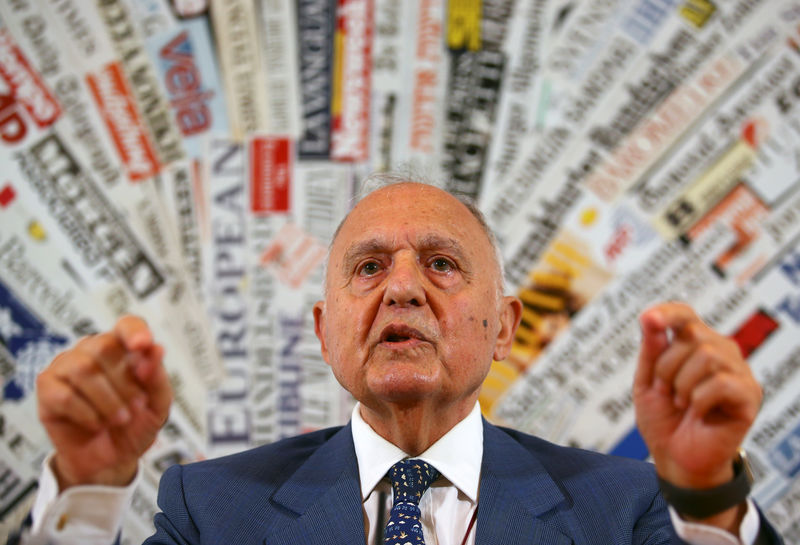
ROME (Reuters) – Italy's new minister for EU affairs sought to reassure investors along with other European capitals concerning the government's stance on monetary union, saying the euro was "indispensable", and denying he ever suggested leaving the currency.
The anti-establishment coalition now in power had originally tapped Paolo Savona for economy minister, but Italy's president vetoed his nomination on account of hostile views he expressed over the euro, saying Italy's decision to become listed on was a "historic mistake".
In a celebration when using the foreign press to show a magazine he wrote before learning to be a minister, Savona what food was in pains to push that he or she fully backed the euro and wouldn’t desire to get prepared for Italy to stop considering currency.
Asked if he saw any rewards for the euro, he called it "indispensable", but said the currency union would have to be "perfected" with reforms to its system of governance.
"The eu Central Bank really should be given a different statute just like that regarding other central banks including the (U.S.) Fed," Savona said, with it to get greater power over currency trading policy.
"We send (ECB President Mario) Draghi around the world hobbled as they can't intervene on exchange rates, it's fundamental that this ECB is able to act on exchange rates."
Savona, an 81-year-old former economics professor, stressed his popularity of Germany, that he had criticized before transforming into a minister, saying in their book it absolutely was aiming to dominate Europe through its treatments for EU economic rules.
"Germany is a good country from many perspectives, culturally, economically and politically," he was quoted saying, though he could not deny he had a different vision from that relating to many German economists.
"They have a tendency to see stability as the necessary condition for growth, because i am section of a set who sees growth to be a necessary condition for stability," he explained, calling for the euro zone to accomplish more to enhance public investments.
In his book, Savona wrote that Italy needed a "plan B" to prepare an orderly exit with the euro if possible, but he stressed they was writing as an "analyst" with never experienced favor of leaving.
"There is not any plan B so i never asked to leave," he explained, while declining ought to a direct question about if it would still be wise to contain a "plan B" if it proved impossible to agree reforms to euro zone governance.
Underscoring his pro-euro credentials, Savona said he no disagreements with all the new Economy Minister Giovanni Tria who gave a strongly pro-euro newspaper interview on Sunday that calmed nervous markets.
"I congratulated Tria to the interview," Savona said.
(This version of the storyplot has long been filed to correct "tend to see stability to be a necessary condition for growth" in paragraph 9)
















